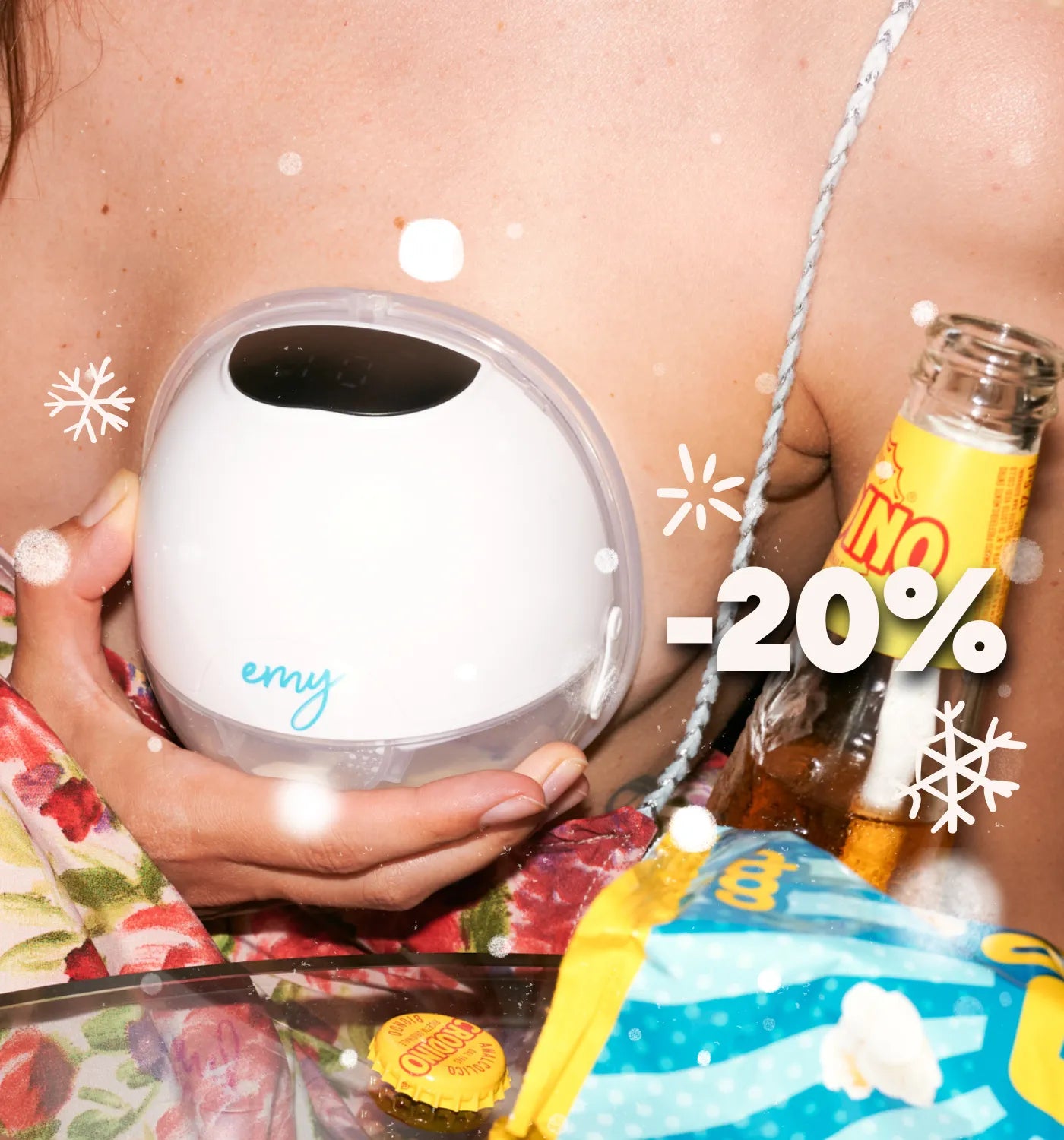THE postpartum is a period of significant transition for new mothers. Although this period is often filled with joyful moments, it can also be marked by emotional and psychological issues. Anticipating and mentally preparing for postpartum is important to best experience this transition phase.
Definition: what is postpartum?
Postpartum is defined by the period after birth of your baby and can last up to a year later, or even more. There are two main phases:
- THE immediate postpartum : This phase lasts approximately 6 to 8 weeks after childbirth. It is during this period that the woman's body undergoes the most significant changes to return to its pre-pregnancy state.
- THE extended postpartum : this phase can last up to a year after childbirth. During this period, the body continues to adapt and recover from pregnancy and childbirth.

How long does the postpartum period last?
It is important to understand that postpartum duration may vary from one woman to another. Some women may feel recovered after a few weeks, while others may need several months to feel completely recovered.
The postpartum period is certainly a period of physical recovery, but also emotional and psychological adaptation which should not be neglected. These aspects can also persist beyond the physical recovery period.
What is the difference between baby blues and postpartum depression?
THE hormonal fluctuations, THE lack of sleep and the new responsibilities can make this period particularly difficult.
Around 80% of new mothers experience “baby blues” during the first weeks after giving birth. It is a transitional period of mild sadness and anxiety passenger which generally lasts one to two weeks, maximum.

However, up to 15% of women may also develop postpartum depression. This assignment is more severe And lasts longer than the baby blues which are simply temporary. It requires a medical attention and a increased support to get out of it.
What are the changes during the postpartum period?
The postpartum period is marked by many changes for the new mother. We can cite, among other things, changes physical, emotional And psychological.
Postpartum physical changes
- Of the vaginal bleeding (lochia) which can last up to 6 weeks after giving birth. 🩸
- Of the uterine contractions (which can be painful) to help the uterus return to its normal size, also called “trenches.” 💥
- The appearance of colostrum and the establishment of milk production to initiate breastfeeding (which can bring its share of problems like a breast engorgement or mastitis). 🤱
- Possible hemorrhoids or the constipation. 💩
- From the fatigue and a lack of sleep. 😴
- Night sweats due to hormonal changes. 💤
- A weight loss progressive. ⚖️
- Perineal pain, particularly in case episiotomy or tearing. ✂️
Emotional and psychological changes
- THE " baby blues »: a feeling of sadness, irritability or anxiety may appear in the first days after giving birth. 😢
- Adaptation to the new reality of maternity. 👩🍼
- The possibility of developing a postpartum depression. 🌪️
- Changes in the couple relationship and sex life. 🍑
Other changes
- Changes to the pace of life to adapt to the baby’s needs. ⏳
- Adjustments in the daily routine and responsibilities, everyone must (re)find their place. 🍼
- The evolution of family and social relationships. 👨👩👧
It is important to note that these changes are completely normal and some are only temporary. They are part of the normal process of adaptation to motherhood.

However, if certain symptoms persist or worsen (pain, stress, guilt, intense fatigue, etc.), it is recommended to consult a health professional.
How to best prepare for postpartum?
First of all, know that you can experience many emotions passing happiness to anxiety by taking a tour through sadness.
This postnatal period is often a mix of highs and lows, and once again, this is completely normal because the arrival of a child represents a huge upheaval in one's life.
Get informed, get informed and get informed 📖
To best prepare yourself, learn as much as you can about postpartum. Read books, attend course prenatal and talk withother relatives. The more you know about theory, the better prepared you will be to manage the practice and the different challenges you will face.

Studies also show that women who are well informed about the postpartum period feel more confident and less anxious after childbirth.
Manage your stress well 💆♀️
Like any change, considering your family growing can be a source of intense and stressful moments. Here are some tips for managing them well.
1. The mindfulness can help you stay grounded in the present moment and manage stress. Furthermore, simple practices such as deep or square breathing, there meditation can be very beneficial. Also, the exercises mindfulness can reduce the symptoms of postpartum depression 40%. 💆♀️
2. One stable routine can bring a feeling of control and of normality. Try to maintain regular habits for meal, THE sleep and your care personal. Indeed, regularity can reduce anxiety and improve your quality of life. 🏠
3. Don't be reluctant to asking for and accepting help. Whether for the household chores, the races Or care of your baby, the support of those around you is crucial. In addition, research shows that mothers who benefit from a social support adequate are less likely to suffer from postpartum depression. 🤝

Find social and professional support 👩⚕️
Surround yourself! Express your emotions and concerns to your partner, your friends or your family. If you feel overwhelmed, consider seeing a mental health professional.
A mental health platform like Domi can, for example, help you find a psychologist who meets your needs thanks to a matching system based on artificial intelligence.
Of the support groups for new mothers can also provide a safe space to share your experiences and get valuable advice. For example, there are child-parent reception centers (LAEP) throughout France and numerous associations of breastfeeding support.
Prepare your space and your tools 🍼
Do not hesitate to prepare your home to make your life easier after giving birth. Create dedicated spaces for changing, breastfeeding, playing or resting. 🛌
Also, use suitable objects to make your life as simple as possible. You can make your perineal rehabilitation at home with the Emy probe for speed up your postpartum recovery.

Or use the Emy Pump hands-free breast pump to make breastfeeding easier. These products can greatly improve your comfort And there management of your daily life. 👩🍼
Discover the Emy postpartum kit
Don't forget to take care of yourself 💕
During pregnancy, the future mother is at center of attention. But as soon as your baby is born, attention immediately turns to the little being who has just been born.
This new responsibility can also be so overwhelming that most mothers sometimes forget to (also) take care of themselves.
Make sure you take time for yourself. Whether it's a short nap, a relaxing bath or a walk, these moments for yourself are essential. These times for you will allow you to greatly reduce your anxiety. 🧖♀️
Also opt for a balanced diet recovery aid physical And mental. Try to eat nutritious meals and above all stay well hydrated. 🥦

Mentally preparing for postpartum is therefore an essential step for any future mother, and father for that matter!
By informing yourself, putting in place stress management strategies, in accepting help and using appropriate tools, you can navigate this period with a lot more serenity !






